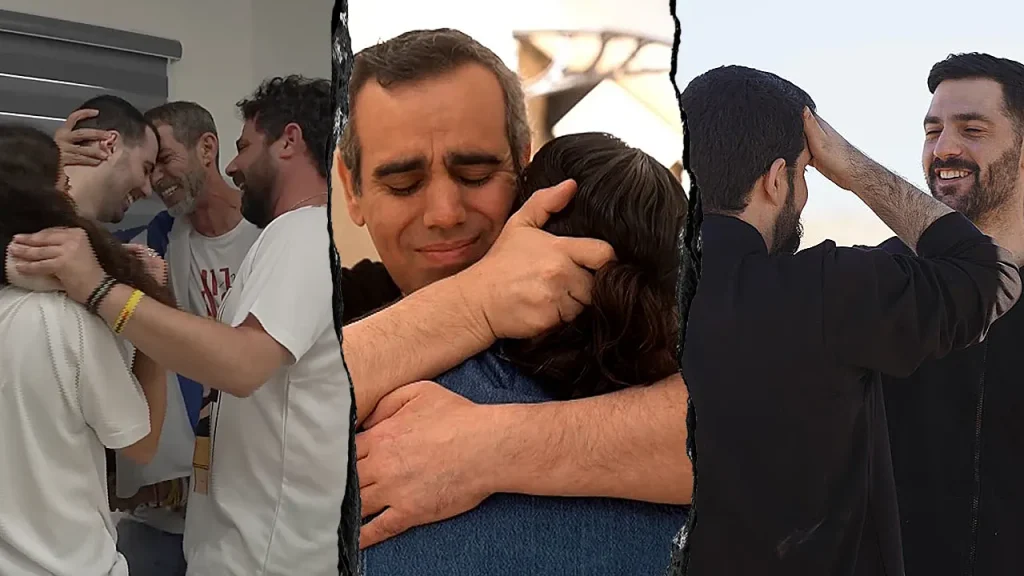Rising Antisemitism Amid Global Tensions
In recent weeks, the world has witnessed deeply troubling accounts of what Israeli hostages endured while in Hamas captivity. As the last 20 living hostages were released, harrowing details emerged about their treatment. These individuals suffered through systematic starvation, isolation, and torture. Medical professionals noted that Hamas attempted to “refeed” hostages shortly before their release—a process that, when improperly conducted, carries significant health risks for severely malnourished individuals. The physical and psychological trauma these hostages endured will likely require extensive treatment and long-term support. Among the most disturbing revelations was the condition of David, an Israeli hostage who was photographed in an emaciated state, highlighting the extreme deprivation they experienced during captivity.
Complicating global understanding of the conflict, the spread of misinformation has become increasingly problematic. In a notable incident, climate activist Greta Thunberg posted an image on Instagram that she claimed showed suffering Palestinians. The Israeli Ministry of Foreign Affairs quickly identified the photo as actually depicting David, the emaciated Israeli hostage. After this misrepresentation was exposed, Thunberg deleted the post, but not before significant damage was done. David’s sister, Yeela, directly confronted Thunberg, stating, “Every minute you are not deleting the post, you are becoming a bigger joke. Embarrassing.” This incident demonstrates how easily misinformation can spread even through well-known public figures, and how such errors can further inflame tensions and contribute to antisemitic narratives.
Educational institutions in the United States have not been immune to controversy in how they present the Israel-Hamas conflict. The nation’s largest teachers’ union distributed materials to its millions of members that included a map where Israel was completely erased and the area was labeled simply as “Palestine.” Even more concerning, the materials reportedly contained content that appeared supportive of the October 7 attacks. This instance of historical revisionism in educational materials raises serious questions about how young Americans are being taught about this complex geopolitical situation. Veteran Israeli diplomat Shahar Azani has warned that such actions contribute to escalating antisemitism and create an environment where disturbing calls for repeated violence find fertile ground.
Political developments continue to shape the trajectory of the conflict. In a Fox News exclusive interview, former President Donald Trump revealed details about his involvement in peace negotiations between Israel and Hamas. Trump claimed that a specific move he made was instrumental in breaking an impasse in the negotiations, though the current situation remains tenuous. Meanwhile, with Americans still counted among the deceased hostages held by Hamas, Trump issued a stern warning to Hamas for failing to meet the terms of his proposed peace plan. These political dimensions add another layer of complexity to an already volatile situation, as leadership decisions have direct impacts on hostage negotiations and broader peace prospects.
The ongoing conflict has sparked a troubling rise in antisemitism globally. Fox News’ “Antisemitism Exposed” newsletter has documented numerous instances of anti-Jewish prejudice across the United States and internationally. The rhetoric surrounding the conflict frequently crosses from legitimate criticism of Israeli government policies into outright antisemitism. Public demonstrations on university campuses, social media discourse, and even mainstream political discussions have sometimes veered into territory that echoes historical antisemitic tropes and stereotypes. Jewish communities worldwide have reported increased anxiety and concerns for their safety as tensions continue to simmer. The blurring of lines between political protest and antisemitism creates a dangerous environment where hatred can flourish under the guise of political expression.
Experts in conflict resolution emphasize that addressing the immediate humanitarian crisis must remain a priority while acknowledging the complexity of the situation. The physical and psychological recovery of released hostages represents just one aspect of the immense human cost of this conflict. Meanwhile, civilian suffering continues on multiple fronts, with humanitarian access remaining a critical concern. Moving forward, accurate reporting, educational integrity, and a commitment to distinguishing between legitimate political criticism and hateful rhetoric will be essential in navigating these troubled waters. As former diplomat Azani notes, the stakes could not be higher—not just for Israelis and Palestinians directly affected by the conflict, but for global stability and the fight against hatred in all its forms. Finding a path to genuine peace will require confronting uncomfortable truths on all sides while refusing to tolerate the demonization of entire peoples.


